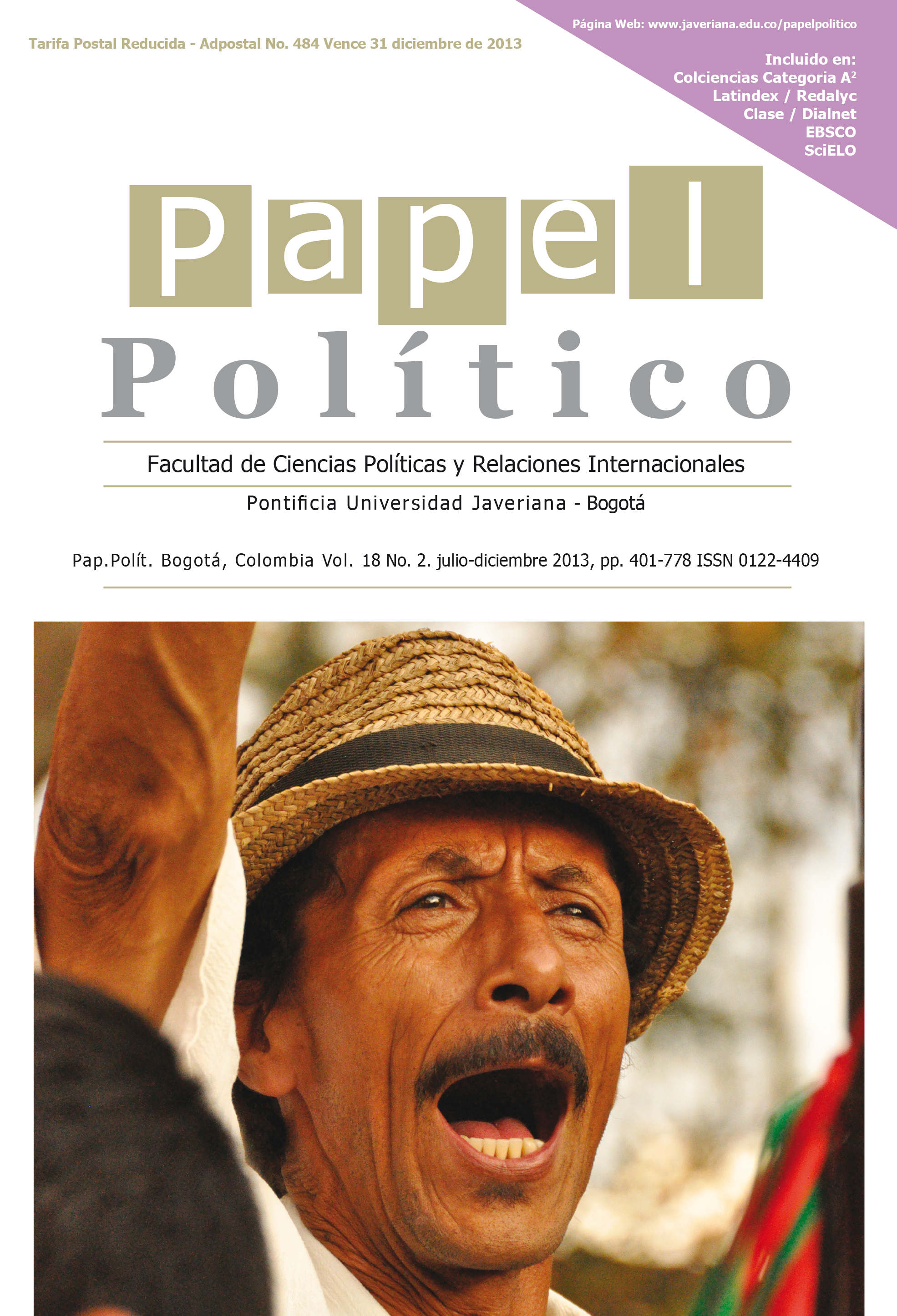Abstract
The currently lack of comparative studies about the Colombian civil wars during the XIX century remain a challenge regarding the number and depth of their impact in our history. The usual consideration of these processes like a kind of perpetual fratricidal fights between their parties temporary suspended through weak political accords and reenacted thereafter is even the dominant assessment. The levels of fighting, the devastation produced in the population and the lethal violence are today aspects ill-researched. The purpose of this essay is to contributetowards a better understanding of these aspects implementing an approach about the CivilWars of 1876-77 and the One Thousand Days (1899-1902) from the theoretical framework of political-legal context, the geo- historical axes and statistical comparison in order to explain their profound change in their practices, ways of regulation, radical degradation and destructiveness.In order to refine the overall assessment of the last Colombian armed conflict in the XIX century with one of the highest death toll in these century, an attempt is made towards a final comparison between these and the US Civil War.This journal is registered under a Creative Commons Attribution 4.0 International Public License. Thus, this work may be reproduced, distributed, and publicly shared in digital format, as long as the names of the authors and Pontificia Universidad Javeriana are acknowledged. Others are allowed to quote, adapt, transform, auto-archive, republish, and create based on this material, for any purpose (even commercial ones), provided the authorship is duly acknowledged, a link to the original work is provided, and it is specified if changes have been made. Pontificia Universidad Javeriana does not hold the rights of published works and the authors are solely responsible for the contents of their works; they keep the moral, intellectual, privacy, and publicity rights.
Approving the intervention of the work (review, copy-editing, translation, layout) and the following outreach, are granted through an use license and not through an assignment of rights. This means the journal and Pontificia Universidad Javeriana cannot be held responsible for any ethical malpractice by the authors. As a consequence of the protection granted by the use license, the journal is not required to publish recantations or modify information already published, unless the errata stems from the editorial management process. Publishing contents in this journal does not generate royalties for contributors.


